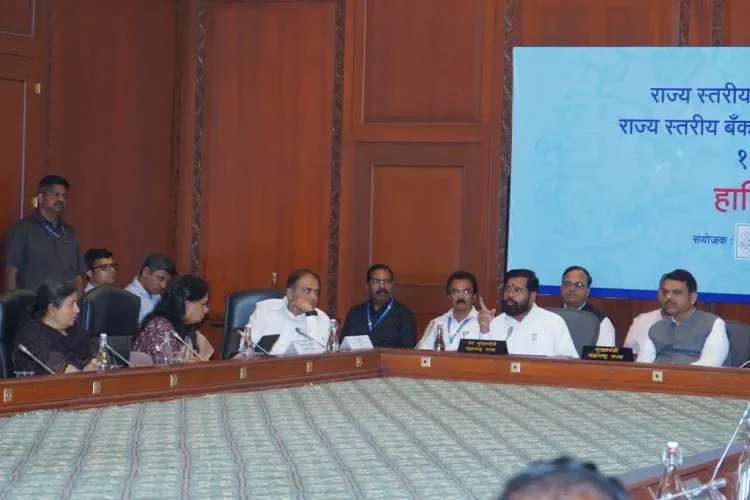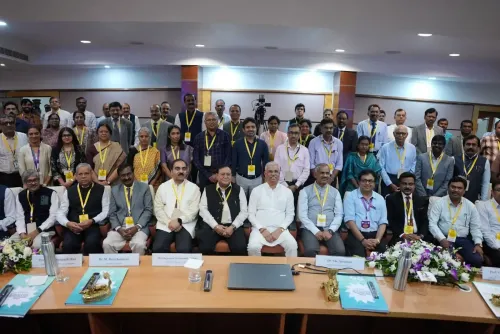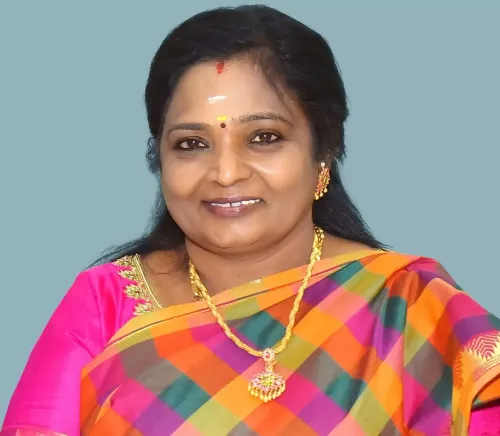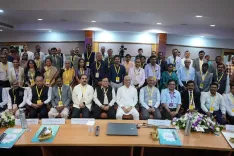Is Maharashtra's Housing Policy the Key to Affordable Living?

Synopsis
Key Takeaways
- Maharashtra's new housing policy targets affordable housing for all.
- Ambitious goal of 3.5 million homes by 2030.
- Focus on sustainable and inclusive housing solutions.
- Introduction of a State Housing Information Portal.
- Emphasis on green building practices and eco-friendly infrastructure.
Mumbai, May 20 (NationPress) Maharashtra's Deputy Chief Minister Eknath Shinde, who also serves as the Housing Minister, declared on Tuesday that the state's new housing policy, titled My Home-My Right, has set a clear pathway for affordable housing targeted at the general public and economically disadvantaged sections of society.
He remarked, “This is a groundbreaking policy that will transform the landscape of urban development and housing in our state. Furthermore, the substantial investments in this sector will significantly bolster Maharashtra’s ambition of achieving a $1 trillion economy.”
Deputy CM Shinde emphasized that this initiative is crucial for delivering affordable, sustainable, and inclusive housing solutions for all demographics, particularly the economically weaker segments. The state government has established an ambitious objective of constructing 3.5 million homes for low-income groups by 2030, with special provisions tailored to the needs of the average citizen.
Detailing the pivotal aspects of this policy, the Deputy CM noted that it addresses the housing needs of senior citizens, working women, students, industrial workers, journalists, the differently-abled, and veterans.
A State Housing Information Portal will be launched as a centralized digital platform employing artificial intelligence technologies.
This portal will facilitate data collection regarding housing demand and supply, geo-tagging of residential properties, fund allocation, land acquisition on a district basis, and coordination with systems like MahaRERA, Mahabhulekh, and PM Gati Shakti.
An inventory of government land suitable for residential development will be established.
This comprehensive land bank will be created by 2026 in collaboration with various departments, including the Revenue and Forest Department and the Maharashtra Industrial Development Corporation, as outlined by Deputy CM Shinde.
The Deputy CM stated, “The Prime Minister advocates for housing to be close to workplaces. This policy is aligned with the 'walk to work' concept, emphasizing housing development near employment hubs, particularly in industrial zones.”
It has also been decided that 10% to 30% of the land designated for amenities in Maharashtra Industrial Development Corporation areas will be exclusively reserved for residential purposes.
Given the rapid urbanization, mandates have been issued to all Metropolitan Region Development Authorities, extending beyond large Municipal Corporations with over 1 million residents, to focus on inclusive housing.
Additionally, a dedicated Self-Redevelopment Cell is proposed to assist housing societies with planning, financing, developer selection, and project execution.
An initial fund of ₹2,000 crore will be allocated for this initiative.
He added that in accordance with NITI Aayog recommendations concerning the G-Hub of the Mumbai Metropolitan Region, the state government must allocate a significant share of the anticipated ₹20,000 crore viability gap fund through the Affordable Housing Fund to stimulate investment in the affordable housing sector.
This policy also promotes green building practices, with a focus on enhancing urban sustainability by integrating eco-friendly infrastructure. New constructions will be designed to mitigate climate risks, employing innovative construction technologies under the Global Housing Technology Challenge for sustainable, disaster-resilient, cost-effective, and environmentally-friendly building methods.
“All redevelopment projects will necessitate a tripartite agreement among the society, developer, and governing authority, alongside an Astro account for advance rent and a bank guarantee to protect residents' interests. Funding will be sourced through CSR to support affordable and social housing initiatives. Knowledge partnerships will be established with institutions like the Indian Institute of Technology, Indian Institute of Management Udaipur, and the World Resources Institute,” he disclosed.
The Deputy CM further noted that the policy intends to utilize land owned by the Central government for slum rehabilitation projects, with collaborative efforts between the Central government and the Slum Rehabilitation Authority to implement these schemes.
“Funding will also be sourced from relevant Central government departments. This policy will leverage information technology to enhance transparency, facilitate real-time monitoring, and ensure accountability in projects managed by the Slum Rehabilitation Authority, enabling beneficiary identification, project status tracking, and fund management,” he stated.
According to Deputy CM Shinde, the policy promotes cluster redevelopment as a strategic method to rejuvenate slum areas.
New qualified developers will be selected through a competitive bidding process for stalled slum rehabilitation projects, with a commitment to eliminate malpractices and delays.
Meanwhile, Chief Minister Devendra Fadnavis noted that the state government has introduced a dynamic housing policy following 2007, anticipating an investment of ₹70,000 crore over the next five years.
“The Maharashtra government has revealed a new housing policy, 'My Home, My Rights'. This policy has been designed with all housing needs in both rural and urban contexts in mind, including previously suspended housing schemes,” he concluded.









